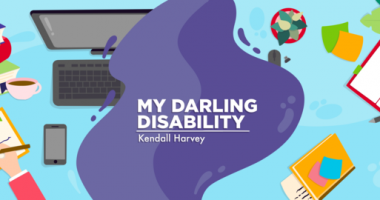I Have a Strange Relationship With Adrenaline

In my humble, nonmedical opinion, adrenaline is an amazingly complicated feature of the human body. It always seems to have tricky and unpredictable effects on my ever-changing Friedreich’s ataxia (FA) symptoms.
Here’s why I think this: My late-onset FA began exhibiting symptoms that were worrisome enough that I began searching for answers to medical questions at the age of 23. In hindsight, I remember having a preview of FA when I was 19 and in college, in an incident that still frightens me as I recall it.
Frozen during rush week
During rush week at Texas State University, my roommates and I went to bed one night at 2 a.m., after an 18-hour day of meeting potential members and preparing for the next day’s events. At the time, sororities at my college had banned alcohol during rush week, so we were completely sober.
At 4 a.m., the fire alarm sounded in our apartment. My roommates and I scrambled to get out of bed and out the door. One of my roommates came into my room to make sure I was up and getting ready to exit the building. But she found me struggling to get my shorts out of the drawer. I couldn’t grab a pair of shorts and dress myself. I was fumbling around and simply incapable of functioning.
So, my roommate grabbed my shorts and helped me pull them up, looped my arm, and pulled me out the door. We sprinted down four flights of stairs and waited with other exhausted, confused, and scared residents.
I was so worried. What had just happened? Why had my body frozen and betrayed me like that with all of the adrenaline coursing through me? Nothing like that had ever happened to me before.
I dismissed the incident as simple fatigue and tried to forget about it. But 13 years, one FA diagnosis, and countless life events later, I can’t stop thinking about that night. Last night, it happened again.
Another alarming false alarm
My husband and I had put our children, ages 6 and 3, to bed before 8 p.m., and we followed later at about 10 p.m. But our fire alarm went off in the middle of the night.
My husband flew out of bed to grab the kids. As he scooped up our daughter, the alarm stopped. So, he tucked her back into bed and returned to find me. I was struggling to get out of bed. He asked if I was OK, to which I responded yes, so he ran to our son’s room to tuck him into bed.
I just sat there, with my mind running 1,000 miles per hour and my body incapable of functioning. I was scared, frustrated, and confused, and felt dangerously helpless. What had happened? Why did the alarms go off like that? What if it had been a real fire?
Strange effects
I knew adrenaline had strange effects on my FA. A couple years ago, my physical therapist worked on muscle memory with me to better equip me for situations in which my adrenaline was pumping.
After expressing concern about my exaggerated symptoms in certain situations, she had me practice carrying weights to simulate my children. The idea was that if I ever found myself in an emergency situation, I would know what I was capable of.
Now that my symptoms have progressed to the point that I depend on a walker, I can’t carry my kids, but I have practiced and prepared other emergency protocol responses.
One situation in which I was thankful for adrenaline was when I fell and obliterated my ankle. I was home with my 1-year-old daughter who was napping at the time of the accident. The fall left me stranded on the ground, staring at my foot as it dangled off my leg in the wrong direction.
I was definitely in shock from the amount of adrenaline in my body, because the injury didn’t hurt at the time. Somehow I wiggled over to my nightstand to grab the phone and call my husband. Then, I called my parents, who live five minutes away, to watch the kids while we went to the hospital.
As I lay there waiting for help, I snapped a few pictures of my ankle.
Adrenaline had kept me from feeling the full extent of my injuries, which I always will be grateful for. Yet, it prevents me from responding properly in an emergency situation, which leaves me feeling overwhelmed and terrified.
While I hope these types of situations don’t happen again, I mostly hope my FA will figure out how to cope with adrenaline.
***
Friedreich’s Ataxia News is strictly a news and information website about the disease. It does not provide medical advice, diagnosis or treatment. This content is not intended to be a substitute for professional medical advice, diagnosis, or treatment. Always seek the advice of your physician or another qualified health provider with any questions you may have regarding a medical condition. Never disregard professional medical advice or delay in seeking it because of something you have read on this website.The opinions expressed in this column are not those of Friedreich’s Ataxia News or its parent company, BioNews, and are intended to spark discussion about issues pertaining to Friedreich’s ataxia.







Comments